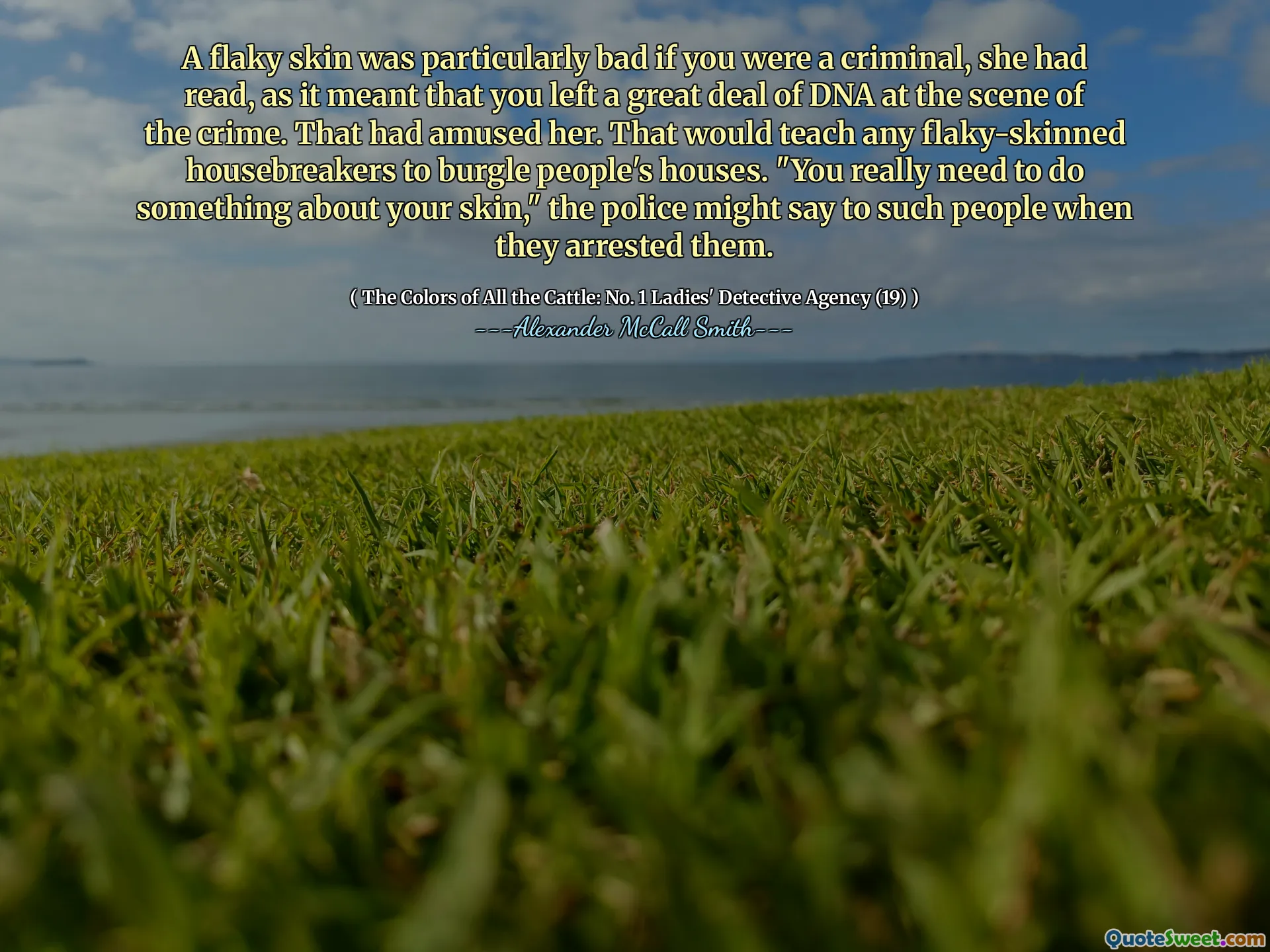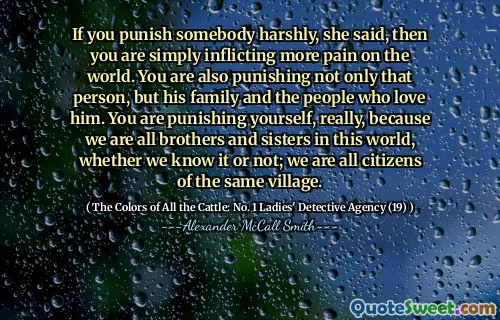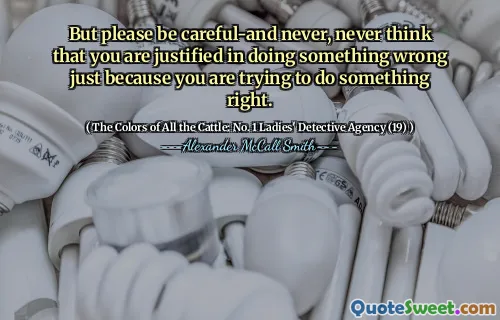
A flaky skin was particularly bad if you were a criminal, she had read, as it meant that you left a great deal of DNA at the scene of the crime. That had amused her. That would teach any flaky-skinned housebreakers to burgle people's houses. "You really need to do something about your skin," the police might say to such people when they arrested them.
The protagonist reflects on the idea that having flaky skin can be a significant disadvantage for criminals. She finds humor in the notion that such a condition would lead to leaving behind a lot of DNA at crime scenes, which could ultimately make it easier for law enforcement to catch them. This amusing thought highlights a quirky aspect of her personality and her perceptions about crime and its consequences.
The character imagines humorous interactions with police where they might admonish flaky-skinned suspects, urging them to take better care of their skin to avoid leaving evidence. This playful take on the situation illustrates her wit and offers a lighthearted perspective on serious topics like crime and justice, showcasing the blend of comedy and reality in her observations.











